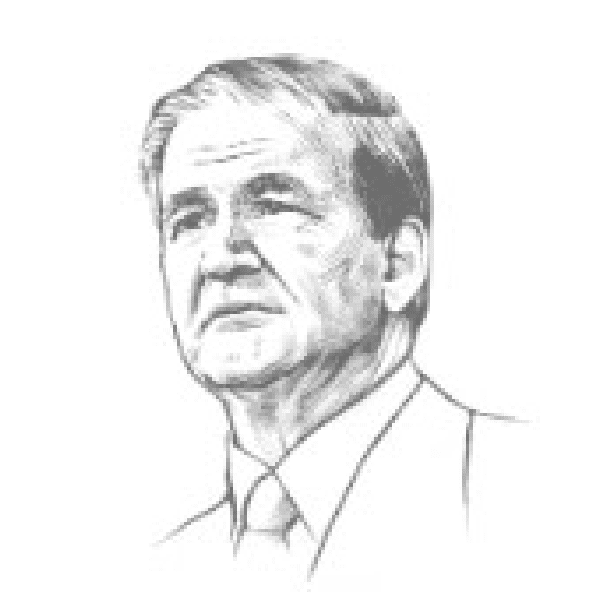A Middle East Without America?
The fever sweeping the Middle East is now coursing through Libya, Yemen, Iran and Bahrain, where the U.S. Fifth Fleet is based.
In all four nations, state violence is being used to crush the rebels, and regime survival hangs on whether security forces and the army stand behind the government or stand aside.
A new Middle East is dawning. What will it look like?
Perhaps the nation to study is Turkey, which has already gone through a democratic and dramatic transformation.
In 2000, Turkey was a reliable U.S. ally, a friend to Israel, an aspiring candidate for membership in the EU. Since then, Turkey has set a different course, welcomed by her people, that has measurably enhanced her prestige.
Prime Minister Recep Tayyip Erdogan’s regime is far more Islamic than any Turkish government since the caliphate. He and his Justice and Development Party have effected constitutional reforms to curb the power of the judiciary and military, guardians of the secular state established by Kemal Ataturk in 1923. Scores of generals have been indicted for treason.
Turkey refused President George W. Bush permission to use its territory to invade Iraq. Denied a fast track to membership in the EU, Turkey now looks to the south and east. Relations with Syria have been repaired. Iran’s Mahmoud Ahmadinejad has been welcomed in Istanbul.
To the rage of Hillary Clinton, the Turks and Brazil cut a deal with Iran to transfer half the low-enriched uranium at Natanz out of the country. This was seen as undercutting U.S. policy. When the U.N. imposed the latest sanctions on Iran, Turkey voted no.
“The Turks are out of their lane,” said a U.S. diplomat.
Indeed they are. And as Turkey moves out of America’s orbit, she is moving back into a Muslim world much of which she ruled for centuries. A sure sign is the bristling hostility to Israel, with which Turkey has had close political and military ties.
At Davos in 2009, in a debate with Shimon Peres about the Gaza war, Erdogan shouted at Israel’s president, “You know well how to kill,” stormed out and flew home to a hero’s welcome.
Eight of the nine dissidents shot by Israeli commandos in the Gaza Freedom Flotilla trying to run the blockade were Turks. Erdogan’s backing of the flotilla and condemnation of Israel for a “bloody massacre” made him and Turkey more admired in Gaza than are Iran and Ahmadinejad.
After that first week of demonstrations in Cairo, when Hosni Mubarak announced he would not run again for president, America dithered, but Erdogan declared that Mubarak should resign immediately.
“The (Egyptian) people expect a very different decision from Mubarak,” Erdogan said. “The current administration does not inspire trust so far as the democratic change wanted by the population is concerned.”
Erdogan abruptly canceled his February visit to Egypt.
What, then, are the crucial elements of the new Turkish policy?
First, a new deference and respect for Islam. Second, make Turkey the champion of the causes of the Arab and Muslim masses, foremost among which is the cause of the Palestinian people. Third, defy the United States and denounce Israel.
What the Turks are about has been called “neo-Ottomanism,” a 21st century policy to reclaim the position they held for centuries.
As the British elbowed aside the Ottoman Turks and the Americans shouldered aside the British after Suez, now it is America that appears to be the receding power in the Middle East and Turkey the rising power.
Indeed, the American hour seems to be rapidly approaching its end.
In weeks, President Ben Ali, our man in Tunis, was overthrown. Mubarak, our man in Egypt for 30 years, was overthrown. Hezbollah became the real power in the Lebanese government. The king of Jordan dismissed his prime minister and cabinet. For the first time, voices are speaking against the royal family, especially the king’s wife.
The Palestinian Authority has been discredited by Wikileaks documents revealing the concessions it was prepared to make for a tiny rump state on the West Bank. Benjamin Netanyahu forced President Obama to back down completely from his demands that Israel halt new construction in East Jerusalem and all expansion of settlements on the West Bank. The Middle East peace process is dead.
Our ally, the king of Bahrain, is now under siege. President Saleh of Yemen, our ally against al-Qaida, has been forced to pledge he will not run again in 2013, nor will his son. Pakistan is aflame with anti-Americanism.
By year’s end, all U.S. troops are to be out of Iraq, where the influence of Iran is rising and the man behind the throne is the anti-American Muqtada al-Sadr.
The U.S. press is transfixed by all this, but a question arises: What vital interest of a United States staring at bankruptcy would be imperiled if we got out of the way, stopped fighting these countries’ wars and paying these countries’ bills and let these people determine their own future for good or ill?

Comments